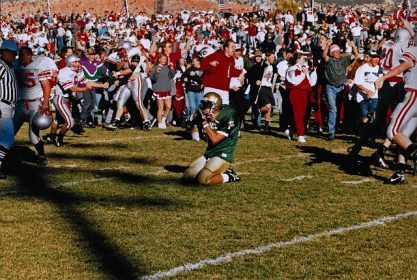Students nowadays are quite skilled at electronic information and some can even hack in and access databases or websites that are not theirs. This hacking can lead to school punishment, suspension or expulsion.
Here are some examples of what can get students into trouble at school.
Inappropriate Grade Changes
Student unauthorized access to and alteration of grades can cause student suspension or even expulsion. I have seen students do this and get caught.
For example, a graduating high gpa (grade point average) student was caught hacking into a school database to change his friends’ grades. Once caught, he was placed up for expulsion and ended up at my office. This was a really good kid, who made a terrible choice.
Eventually resolutions may be developed (or not), but if so, could mean a graduating student stays at home the rest of their senior year. The situation was devastating to the student’s family and really not worth it as the student was legitimately a top academic student.

badly for a student
Changing Votes In School Election
I recall a scandal with a parent and student who hacked in and altered school election votes, to become Homecoming queen. This got the parents and student in trouble, with criminal charges levied as well.
I am not sure what punishment the student received, but would imagine if this happened in California, the student would be up for school expulsion.
Changing School Yearbooks or Properties
There was another school scandal where a recently graduated student hacked into the school yearbook. and allegedly inserted a Hitler quote below another student’s name, and attributed the quote to George Floyd. The yearbook came out broadly with this quote.
The school had to go through severe efforts to correct the yearbooks and this impacted an entire community, where the altered yearbooks were distributed.
Post Graduation Punishment?
If the above yearbook hacking student had already graduated when the act was committed, an expulsion could not proceed, but criminal charges could. If the student did the act before graduation, it is conceivable the student could face a school expulsion hearing even after graduation, but I hardly see the point.
I have seen schools push forward with expulsion hearings after student graduation, but usually this occurs when the problem was a hot issue in the community and the school district felt they had to act to appease community leaders.

Law On Hacking Violations?
The main laws on school suspensions and expulsions start at California Education Code 48900. There is no legal code directly prohibiting hacking, but students with electronic hacking allegations could conceivably be in trouble for theft, bullying, school disruption, harassment or otherwise.
Whether alternatives to suspension or expulsion may apply, depends on the allegations against the student and any perceived dangerousness from the student’s acts.
Student expulsion lawyer Michelle Ball helps parents and students with suspension, expulsion, and discipline issues as well as free speech matters. Located in Sacramento California, attorney Michelle Ball can assist students all over the state, including in Berkeley, Oakland, Roseville, Marysville, Fresno, Irvine, Davis, and many other locations.

